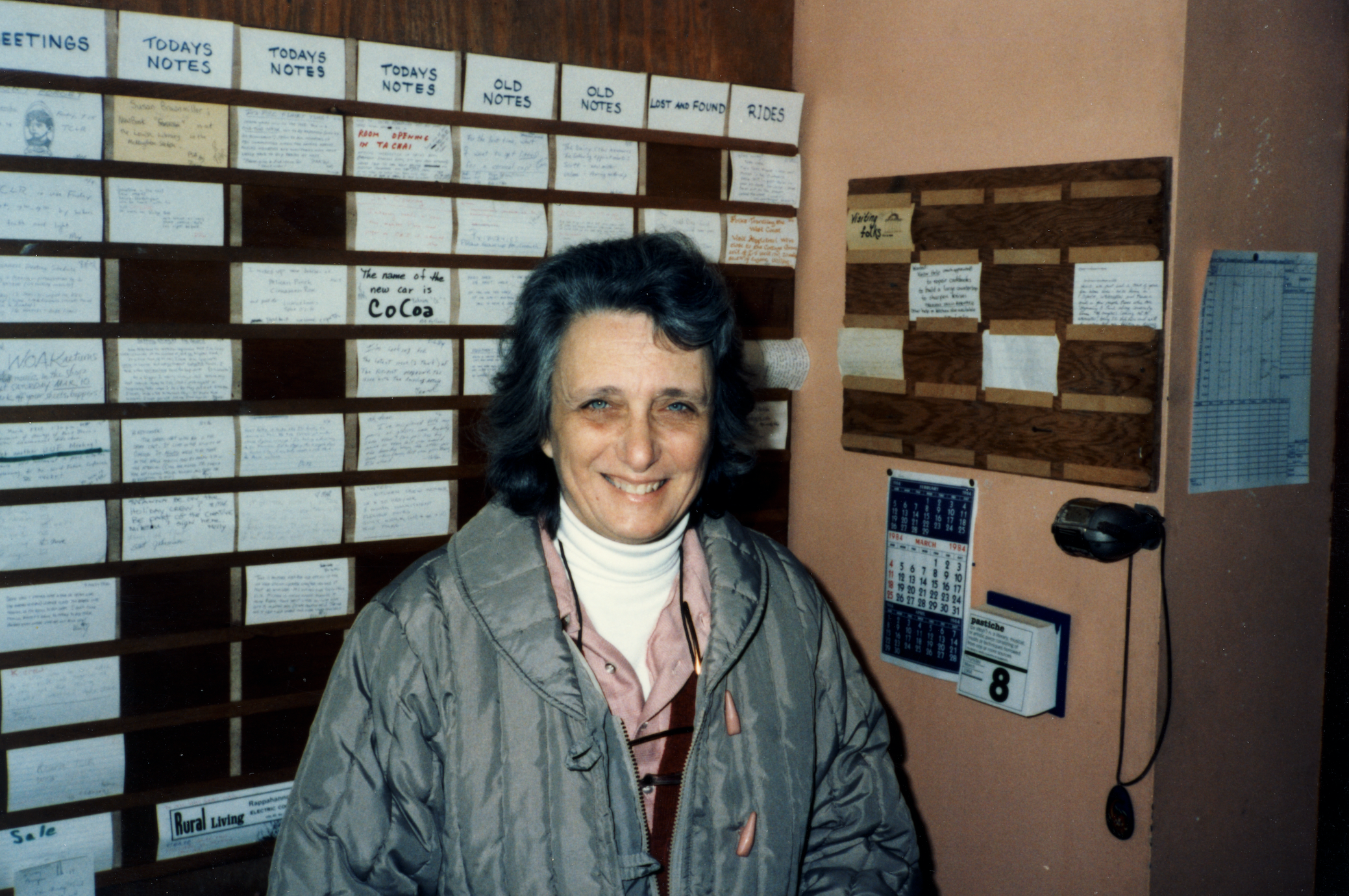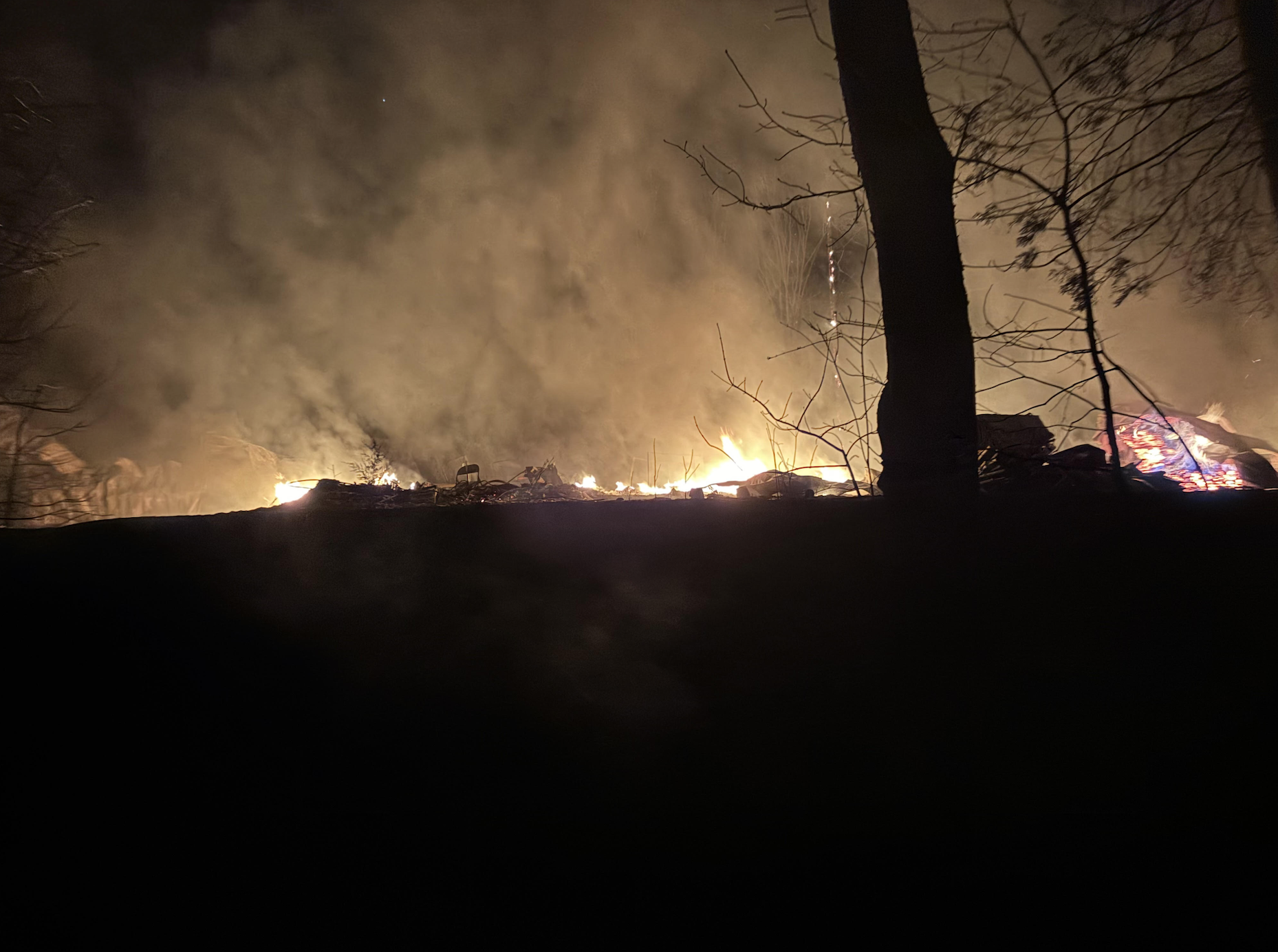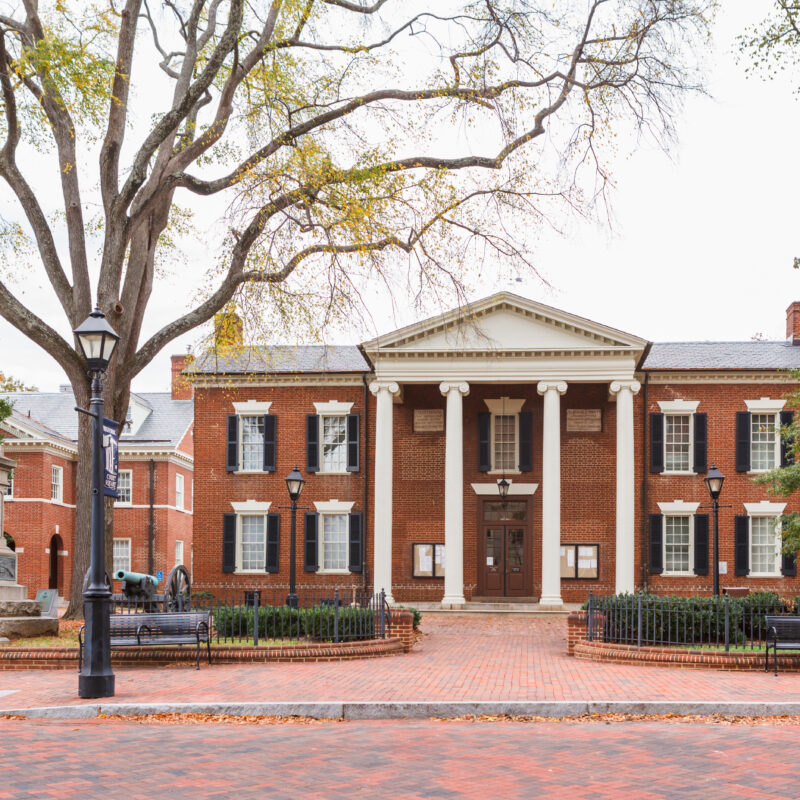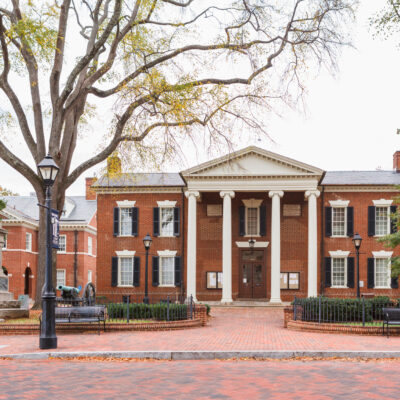Deep in the Louisa backwoods, Twin Oaks sits on a dirt road that runs behind the ancient Yanceyville Mill on a 450-acre property unlike any in the area. Dotted by rustic two- and three-story dormitories with names like “Tupelo,” named for a type of tree, “Degania,” after a socialist Zionist kibbutz, and “Zhankoye,” an old Jewish laborers’ song that residents abbreviate to “ZK,” it is a community that is ostensibly different in every way from the rest of deep-red Louisa County, which is exactly what most residents came there seeking.
The perceived dichotomy between the close-knit (and mostly conservative) residents of Louisa County and the progressive and inclusivity-focused Twin Oaks has grown into a metaphorical brick wall over the decades, as obvious and tangible to the commune’s residents as it was to Louisa County’s—that is, until March 20, 2024. On that day, when approaching flames threatened to destroy the very place that had touched the hearts and minds of countless people for more than half a century, this paradise to so many, the brick wall separating the two communities was demolished.
***
An intentional egalitarian community, or commune, Twin Oaks was founded in 1967 by eight people seeking a more sustainable and communal lifestyle, fleeing the escalating materialism of modern life. The most famous of its founders, Kat Kinkade, would go on to write two books about the community and would become instrumental in founding two others: East Wind in Missouri and Acorn, the younger and smaller offspring of Twin Oaks, just down the road in Louisa County. Inspired by B.F. Skinner’s novel Walden Two about a fictional utopian collective, the commune’s initial founding was roughly sketched according to the book. Soon, however, Twin Oaks found itself diverging from the behaviorist principles of Skinner’s novel, becoming its own entity focused on egalitarianism, equality, and inclusivity, specifically regarding access to resources and power. Today, Twin Oaks and its residents share their money, cars, clothes, food, and just about everything else. Residents share their responsibilities and raise their children together, and while many have several jobs around the community’s businesses—weaving hammocks, making tofu, and selling heirloom seeds—some current and former members have outside jobs.

These egalitarian principles are only part of what separates Twin Oaks from the rest of Louisa. It’s not uncommon in rural America to find informal arrangements made between unrelated neighbors—ones that involve the sharing of resources as well as collaborative and multi-family living, particularly in places like Appalachia and the rural South, where low-income families often collaborate with each other out of necessity. Sustainability practices, recycling, and waste reduction are things that poor families have been doing in the South for years as a means of survival.
What makes Twin Oaks different is its welcoming of alternative lifestyles, its inclusivity and devotion to equal rights, and its embrace of free spirits and free thinkers. Against the conservative backdrop of Louisa County, the natural assumption is that such a place would be unwelcome by the greater community—and the commune’s members have certainly faced their share of strange looks and prejudicial treatment.
“I’ve gotten a lot of accusations of being in a cult,” says Keenan Dakota, laughing. “It’s really not that weird. We want a place like Mayberry, where everyone knows each other’s name and the sheriff doesn’t need to carry a gun. We want what most people want.”
Like many others, Dakota, who has lived at Twin Oaks for more than 40 years, says he had a lot of his own assumptions before coming to Twin Oaks in 1983 while he was a college student at George Mason University.
“I was a young republican,” he says. “President of the student government. It was a long time ago … I went on my first Saturday tour [of Twin Oaks] through a school program, and it was … different. It was not what I was expecting.”
After his first few trips to Twin Oaks, where he was exposed to alternative lifestyles and revolutionary ideas, the context of the information he was learning in school began to shift.
“I remember going back to school after that, and I was in a macroeconomics class, and they were talking about infinite growth,” he says. “I remember thinking, wait a minute … y’know what has infinite growth? Cancer. And what does that do to the body it grows in? I was two classes away from graduation, and I moved to Twin Oaks.”
***
Wednesday, March 20, 2024, was warm for a winter day, with temperatures hitting the lower 50s by afternoon. Paxus Calta was gathered with a group performing a ritual, a calling of the elements, to celebrate the equinox.
“Shortly after the equinox ritual called the element of air, wind blew hard enough to send plastic chairs flying around us,” Calta, a Twin Oaks resident since the late ’90s, writes on his blog, where he chronicles his life and travels. “When we called water, clouds blocked the sun and it felt for a moment like we might actually get rain. And less than 15 minutes after we called the element of fire into the circle, brown clouds from the neighbors’ land started billowing overhead in the courtyard.”
A few hundred yards away, Dakota was in his bed, napping.
“There was a knock on my door,” he says. “Someone said, ‘There’s a fire, we gotta evacuate.’ I was skeptical, because we’d had a fire back in September and it really wasn’t anything like this. So I figured we’d go out there and make sure everything was fine and then I’d come back to bed.”

Unbeknownst to any of the residents, an unattended brush fire was left still-smoldering about a half-mile away. According to a report from the Virginia Department of Forestry, the gust of wind described by Calta was enough to reignite the smoldering brush, and the wind blew the fire into a young pine forest, where it spread rapidly.
“I saw plenty of smoke, but I couldn’t see any flames,” Dakota says. “I really didn’t think it was a big deal until half the sheriff’s department showed up.”
The fire was threatening to tear a path of utter and absolute devastation through southern and central Louisa and likely would have done so if not for the quick intervention of Louisa County’s first responder community. According to VDOF’s accounting, 46 first responders and VDOF personnel (many of them volunteer firefighters) answered the call to combat the fire, as well as multiple Louisa County Sheriff’s Office deputies and Louisa County public school buses. Their response saved more than $6 million in property alone. Most area residents evacuated to two places: sister commune Acorn or a shelter set up by Louisa County Emergency Services at the local middle school. Dakota was one of the residents who went to the latter.
“It was really touching to see them go to such lengths to help us,” he says. “I’ve lived here for over 40 years, and I never really thought of myself as part of Louisa County. I thought of myself as part of Twin Oaks. … We’ve had people and churches show up with everything from food to money donations. It’s really touching.”
While no people were hurt in the fire, the same could not be said for many commercial and industrial buildings, both on and off Twin Oaks’ property. The two most disastrous losses for the commune were Emerald City, the processing and storage facility for the hammock business that is one of the community’s main sources of economic income, and the conference site, including the pavilion and kitchen, which is where residents host several conferences throughout the spring and summer, including one of the few queer-focused celebrations in the area.
VDOF estimated that total damages are less than $200,000. But Twin Oaks resident Raen Thornberry, one of four elected “planners” who make important decisions for the community, says that the loss of potential future income and the costs of rebuilding puts the true figure much higher—closer to at least $1 million.
Dakota, whose role in the community varies from shop teacher to maintenance worker, is part of the crew responsible for fire remediation. He says that the community is still in the early phases of cleaning up and assessing their damages and that the rebuilding process will be later this year.
“At the moment, Twin Oaks has not decided the best way to move forward to replace the lost business,” he says. “We will be doing a communal design process over the coming months and volunteers will be needed this winter once we start genuinely rebuilding.”
In the meantime, Dakota says, the fire taught the community a lesson.
“I don’t speak for everyone,” he says, “but for me … I was very touched by the response from volunteers and churches throughout Louisa. I didn’t expect this kind of response. It showed me a lot about the people around us.”
Sarah Rose, a New York transplant living next to the commune’s southern border, lives adjacent to the empty lot where the fire began. She said that while her relationship with the people of Twin Oaks prior to the fire had been polite but distant, the fire brought her closer to the community.
“We were always comfortable having them as neighbors,” she says. “[We] have always been on the progressive side of things, politically, so I had no problem living next to people with alternative lifestyles … but since the fire, they’ve been one of our best allies.”
Following an investigation by the VDOF, Louisa County prosecutors charged James Grant League, 45, with leaving a fire unattended and careless damage by fire, both misdemeanors. His next court date is August 22 in Louisa County General District Court.
Here to help
Twin Oaks is accepting volunteers for the cleanup and rebuilding process, as well as crowdfunding donations. To volunteer, contact Zoe at zoedamlefl@gmail.com or Paxus at paxus.calta@gmail.com. To make a donation, visit tinyurl.com/twinoaksfire.—AH






